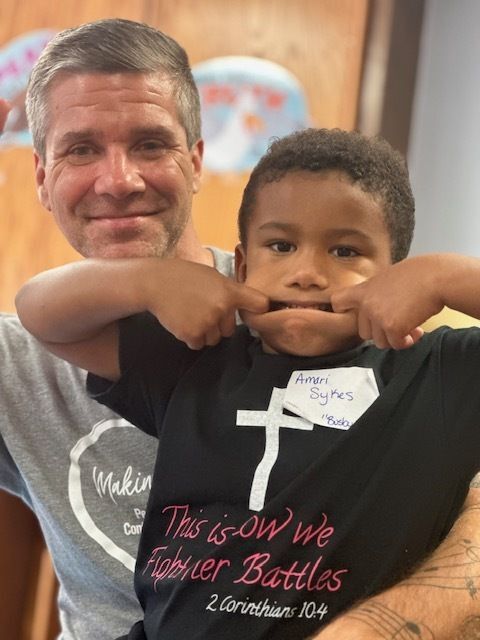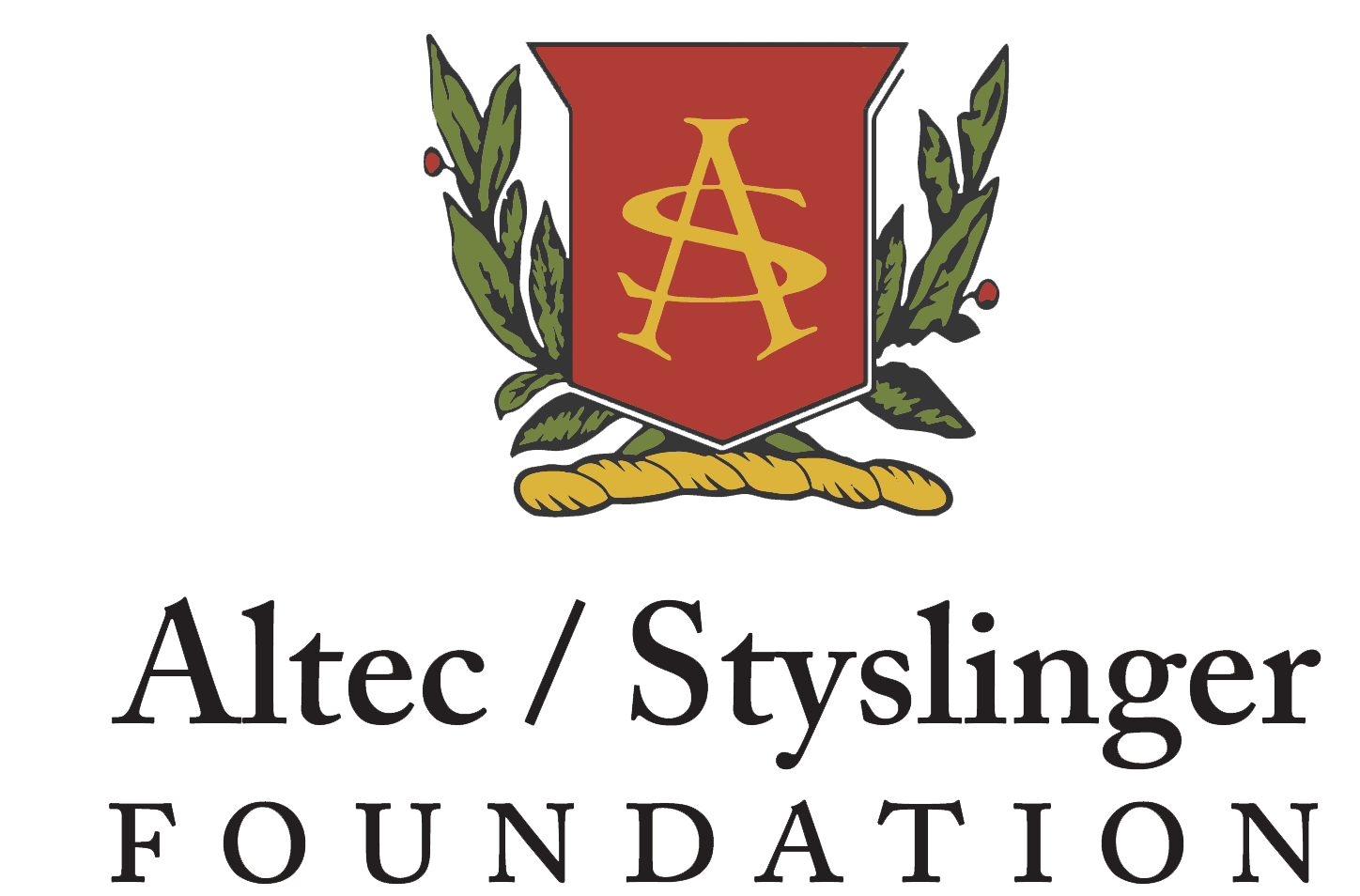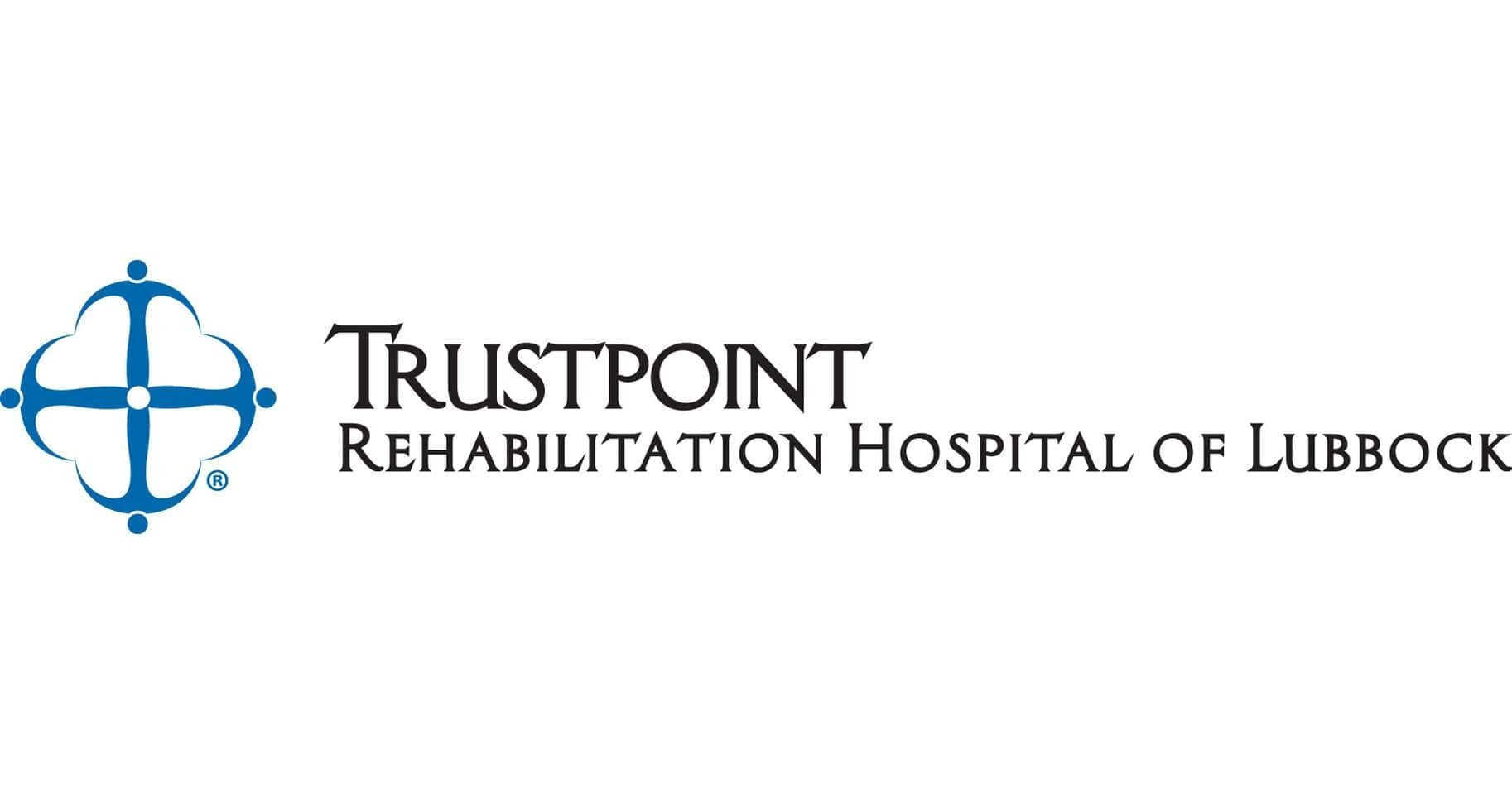7th Annual
Making Connections
Pediatric Brain Injury Conference & Resource Fair
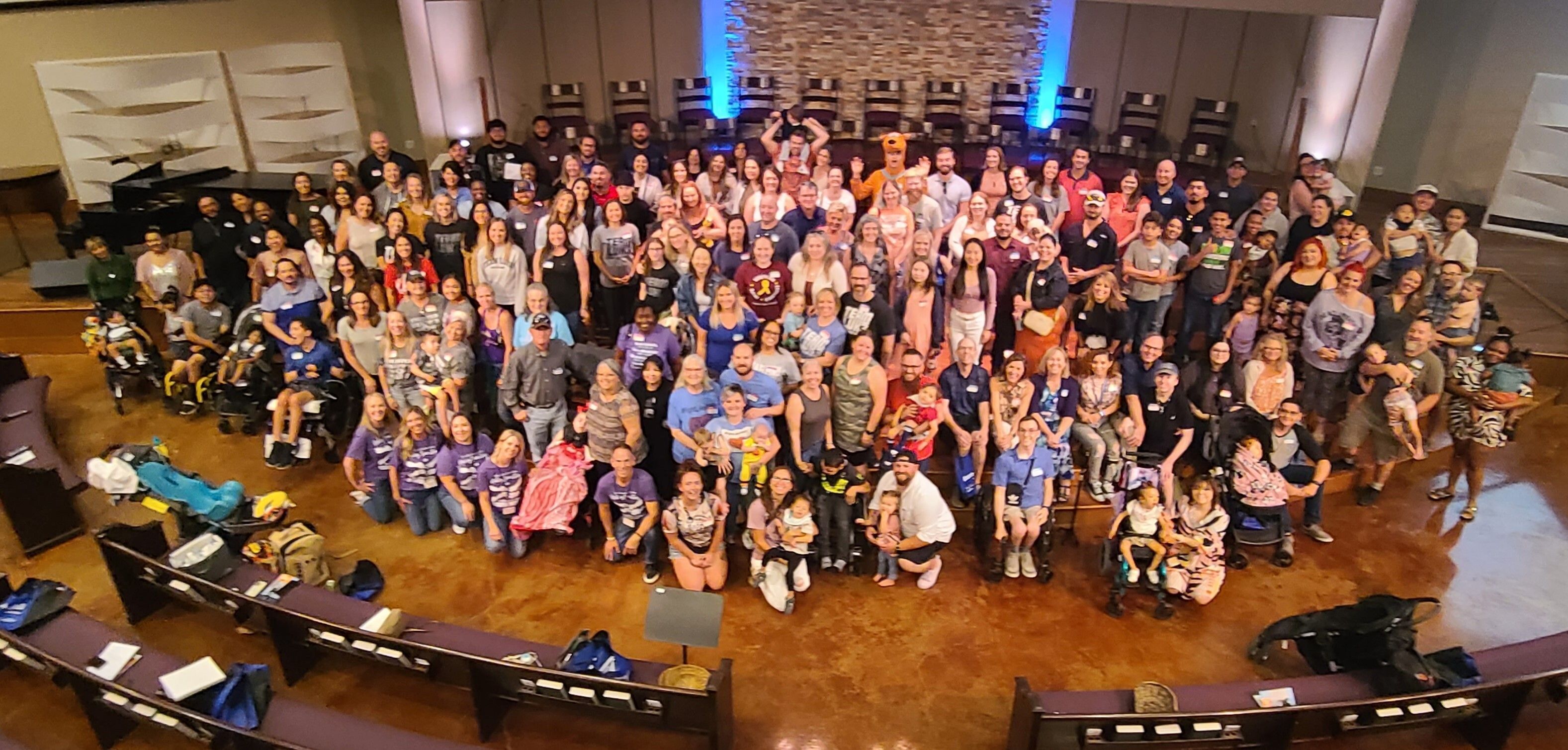
The Team Luke Hope for Minds 7th Annual Making Connections Pediatric Brain Injury Conference and Resource Fair was held in Austin, Texas on September 29 & 30. Special thanks to our Presenting Sponsor, NeuroSolutions of Austin.
The presentations were recorded and are listed below. Thank you for your patience as we process all videos and make them available.
Our Keynote Speakers are Dr. Crawford, Dr. Harch, and Dr. Proefrock.
Conference Videos
Dr. Kenneth Proefrock NMD: Alternatives to Polypharmacy in Conditions of Neurological Impairment
Total Wellness Medical Center
Those diagnosed with severe neurologic impairment are frequently prescribed multiple medications to manage a variety of often interrelated symptoms, including pain, uncontrolled muscle tone, seizure, sympathetic storming, dyspnea, gastroesophageal reflux, and constipation. However, limited communication abilities often prevent these patients from reporting their symptoms, and polypharmacy further limits clinical assessment of symptoms and response to therapies. We discuss alternative agents and strategies for the ten most prescribed medications for this population of patients. We will discuss the indications, uses and side effects for the most commonly used pharmaceuticals and discuss rational alternative strategies that accomplish the same objective without the drug.
Harch HBOT
This is a talk about the nightmare that happens to thousands of children and their parents every year in the U.S., catastrophic brain injury from cardiac arrest, using drowning as an example. It’s a talk about what you can and should do, especially in the ICU, about information and misinformation in the ICU, about considerations in the decision-making process, and about further treatment as soon as your child is out of the ICU.
Dr. Brandon Crawford, DC FIBFN-CND: Neurohacking for Optimal Health
NeuroSolution Center of Austin
In this intriguing lecture, we delve into the fascinating world of neurohacking—a method to enhance cognitive functions, attune mental wellbeing, and promote optimal health. Contrary to common misconception, neurohacking isn’t exclusively a high-end or overly technical game. We explore evidence-based, accessible strategies that anyone can implement in their daily life to boost their neurophysiology.
Dr. Crawford’s post conference Q&A recordings: 11/8 Q&A Session
Q&A Session with Dr. Proefrock and Dr. Crawford
Jonathan Parr, PT, EP, MCMT, CSCS
At Home Physical Therapy Interventions: Caregiver Edition
Jonathan Parr discusses and demonstrates positioning techniques, stretching activities, neuromuscular training, and visual/auditory stimulus activities that can be done at home.
Danielle Vernon, PT: Early Intervention Strategies for Scoliosis and Brain Injury
This presentation provides practical tips and strategies for parents on how to navigate the challenges that come with having a child with a brain injury and scoliosis. It covers the benefits and importance of early detection and intervention, as well as exploring the best ways to manage and mitigate the risk of progression.
Laurie Longest, MS, PT, MNRI core specialist/instructor: Brain Injury: Journey to Recovery using MNRI!
Svetlana Masgutova Educational Institute
The primary reflexes we are born with are responsible for guiding us through the birthing process, protecting us as we adjust to life in a scary new environment, navigating us through our childhood developmental skills, and providing us with strength and resilience to daily stress. Understanding these roles, Dr. Masgutova has created a natural and safe program that uses these reflexes as a recovery tool to address both physical and emotional trauma. This program, MNRI, works for all ages and all diagnoses. Today’s presentation will focus on post-concussion recovery as the reflex techniques calm the hyperactive freeze/fight/flight response and reintegrate the reflexes needed for sensory, vestibular, auditory, and visual recovery systems frequently impaired after a brain injury. MNRI can also reintegrate the reflexes needed to regain developmental motor skills, social skills, cognition, and speech. Join us as we discuss the journey to brain injury recovery using MNRI!
NeurosolutionsTeam: Creating an Optimal Environment for Brain Healing
Kristin Hughes, OTR, Melissa Wittman, DC, CFMP, Cordell Miller, DC, MSc, Mikael Larsen, DC, MSc , Trevor Montgomery, PT, DPT, Katie Lindsey, CND, LSO
Have you ever considered how your environment impacts brain function and development? In this session you will learn several strategies to improve your environment to support optimal brain healing.
Cristina Sanders, DO & Dr. Maureen Nelson
Texas Tech University Health Sciences Center (TTUHSC)/Texas Children’s Hospital Austin
Pediatric Rehabilitation Medicine (PRM)- How your child can be helped with specialty care throughout their entire recovery journey.
An overview of PRM subspecialty care involved with pediatric brain injury; how your child’s care will be assisted, including medications for tone, sleep, and attention; bracing; equipment; interventions including botox, intrathecal pumps, & cryoneurolysis; school return & other community participation including sports, theater; there will also be a brief summary of a premier evidence based review of the current available treatments.
Stacey Gesinger: Marriage–what is there to talk about?
This session explores ways to communicate effectively and healthily within your marriage or partnership, as well as ways to connect.
Nick Wallace, ChSNC®, RICP®: Special Needs Planning
A workshop designed to provide families and professionals confidence and clarity in financial and legal planning for the future of a child or loved one with disabilities. Topics Covered: Why Plan?, Nick’s Personal Experience, ABLE Accounts, Special Needs Trusts, Financial Strategies and Open Q & A.
Lauren Elizondo: Introduction to Neuroplasticity After Brain Injury
In broad terms, brain injuries (BI) consist of structural and/or physiological alterations in brain function, disconnection of neural networks, inflammation, etc. It is now understood that the central nervous system (CNS) cannot only adapt to injury but also recover from it. This concept is known as “neuroplasticity.” In this course, we will cover how BIs impact brain function. We will then discuss the basic principles of neuroplasticity, and how we can apply those basic principles in the rehabilitative process to regain and/or compensate for loss of function after a BI.
TyiaLynn Scott & Taryn Owens: Building Family Unity While Navigating Special Needs
Join TyiaLynn and Taryn (Critically Loved) for a time of interactive learning as we work together to create a team atmosphere in our homes. We know this can be very challenging when special needs require much time to be focused on caring for one child. During this workshop, we will look at five key areas to help us work towards the goal of building unity in our families!Join TyiaLynn and Taryn (Critically Loved) for a time of interactive learning as we work together to create a team atmosphere in our homes. We know this can be very challenging when special needs require much time to be focused on caring for one child. During this workshop, we will look at five key areas to help us work towards the goal of building unity in our families!
Laurie Longest: Pampering the Parents with MNRI (Lunch & Learn)
This short presentation will teach parents some MNRI self-initiated reflex exercises for addressing their own trauma and stress. There will be a brief neurological explanation of why the exercises work, followed by some active learning. Don’t be nervous, all techniques are easy to mirror and can be done in the clothes you’re already wearing. Come join the fun and let’s destress for ourselves and our children!
Deborah Zelinsky, O.D.: The Importance of Having a Mind-Eye Connection
Having a solid connection between your mind’s internal decisions and the external inputs into your eyes is crucial for academics, sports and social skills. The Mind-Eye connection is due to the lining of the eye (the retina) being part of the central nervous system, sending and receiving signals from various brain pathways. Customized eyeglasses can alter retinal processing and are useful to help people adapt quickly to changes in the environment. This presentation will explain how people uniquely view their surroundings and how each perception can be measured and modified to help such problems as poor transitioning, clumsiness, poor reading comprehension and difficulty with maintaining attention.
Dr. Jeri LaVigne: Are You Ready for Your Close-up, Mr. Blood Cell?
Live Blood Analysis is an effective tool to view the body’s internal health state. Looking at the blood under a dark field microscope, we are able to see how healthy the cells are, how clean the plasma is, as well any signs of degeneration and aging. Parasites, mold, bacteria and other stressors can also be viewed in the blood. This information is a helpful tool, as it not only can be used to source out ailments in your body, it can also be used as a preventative measure.
Dr. Danielle Barron: Are Your Cells Running on Empty? The Essence of Mitochondrial Health & Function
Mitochondria are microscopic energy markers that are crucial for brain and body health. They are susceptible to dysfunction in the presence of injury, environmental toxicity, chronic infections, biotoxin overload, and nutrient deficiencies. Leaving the mitochondrial component unaddressed, can greatly alter results in the healing process.
Kristen Desjardins, M.S., CCC-SLP: Feeding and Eating after Brain Injury
This session will discuss the potential feeding and swallowing complications that frequently occur after brain injury and practical interventions to facilitate improvement.
Dr. Jeri Lavigne: 3 Part Nervous System
Compassionate Touch for Creating Possibilities: Awareness Through Movement® for Happy Kids and Families
Erin Finkelstein, M.Mus, Guild Certified Feldenkrais Practitioner
Sound Movement Services
Compassionate human touch, and connection through all the senses, helps us function and learn how to move better at any stage of life, no matter how severe the present challenges are. This presentation of the Feldenkrais Method® and its principles of awareness, neuroplasticity, and finding efficient skeletal movement through attention to quality and ease, will include Awareness Through Movement® experiences that you can take with you into your daily life. Kids are welcome.
Dr Cullen Gibbs Managing Challenging Behaviors Focused Support Group
This presentation will focus on providing caregivers an understanding of behavioral strategies when supporting children and adolescents with traumatic brain injury (TBI). An overview of basic behavioral principles will be provided including specific strategies focused on positive reinforcement. Strategies for addressing the unique behavioral problems demonstrated by children and adolescents with TBI be provided. The presentation will include participatory activities for at
Sponsors
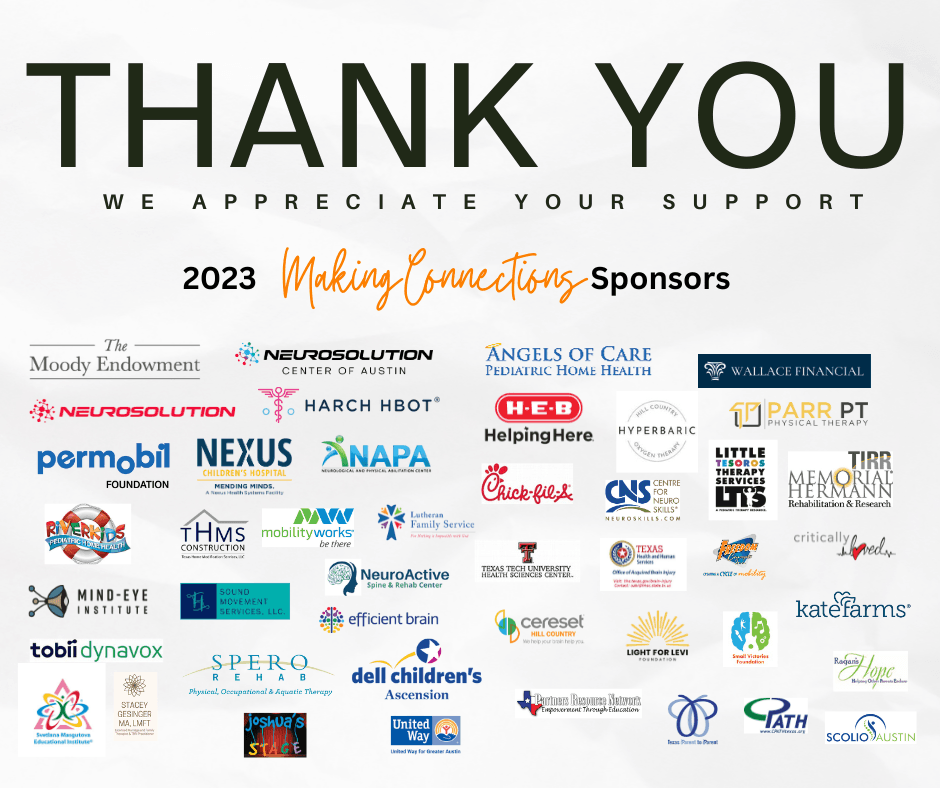
Making a meaningful difference in the pediatric brain injury community!
-
States Served
47
-
Luke's legacy lives on daily, even in conversations between a father and daughter that he never met.

